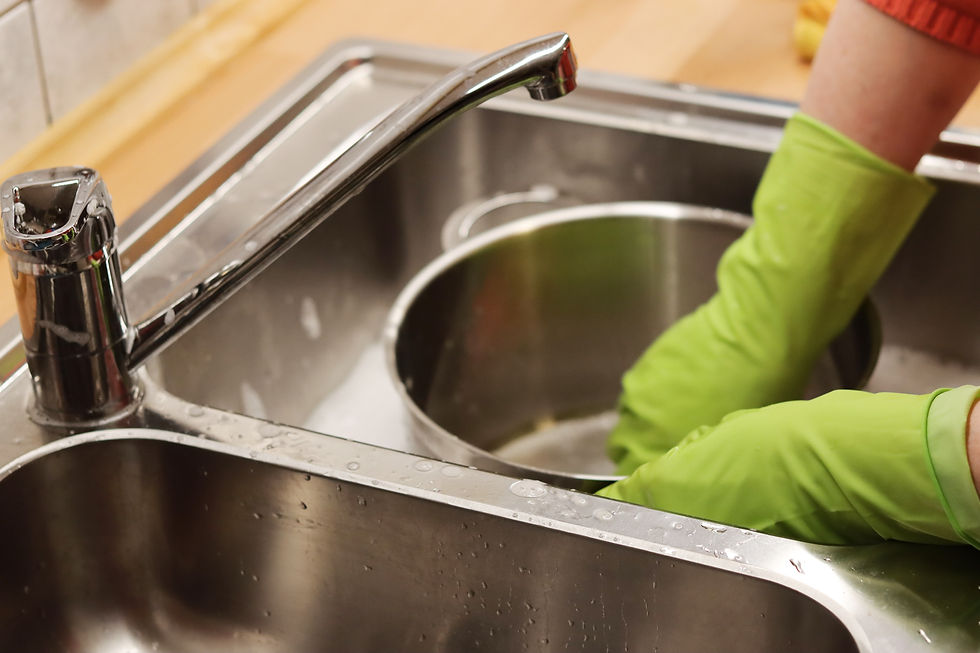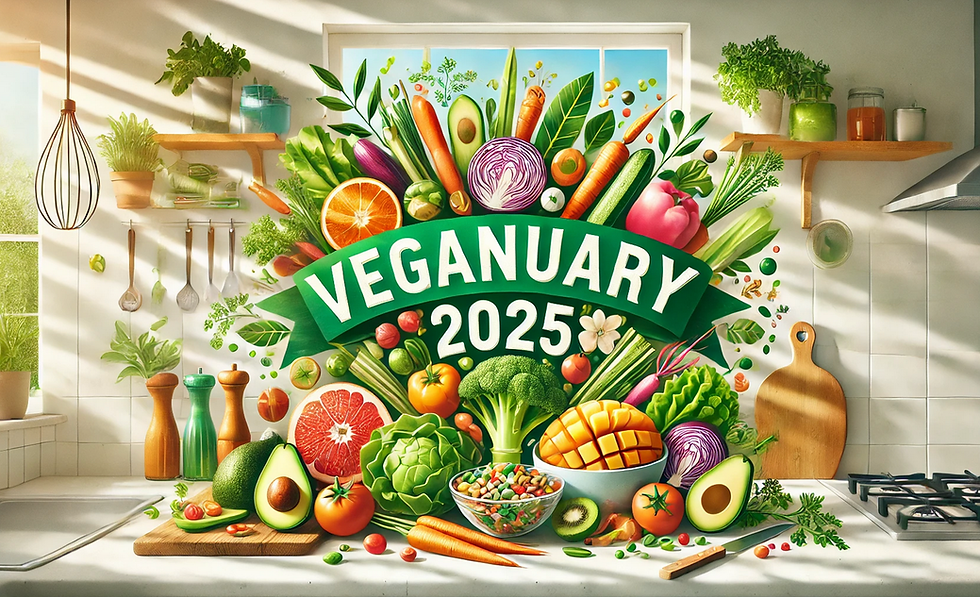A 'greener' kitchen doesn't have to be difficult or expensive
- May 18, 2021
- 4 min read
Updated: Jan 10, 2022

1- Bring your own bags. You wouldn't think we'd still be talking about this in the 21c, but I still see folks using plastic produce and grocery bags. I've been using little drawstring mesh produce bags for years now, in addition to my own grocery bags. These drawstring wonders have even found their way into the produce section of my fridge for things like apples.

2- Cook once. Eat twice. Or, three times? Batch cooking is not only a time-saver, but saves money and resources. Today, I made a big batch of vegan Chili that I can serve over pasta, rice, beans or just by itself with tortillas. It frees me from "what are we gonna eat?!" which can lead to ordering a less healthy, less green take-out meal, for example. Soups, extra cooked pasta and grains, stews and more will freeze great! That's a time, money and resource saver.

3- Put a lid on it. When you're boiling water, don't let that energy needlessly escape into the kitchen. A lid traps heat, and boils water faster, meaning you'll use less energy.

4- Reduce your water use. This is as simple as wiping food scraps into the compost bin, and then running the dishwasher only when it's maxed out.
When I'm staying with family and friends in France - where energy and water are more expensive - we don't let the faucet run while rinsing dishes off. Fill the sink just partially (or use the largest pot that you were cooking with) and do a quick swish before loading the dishwasher. If you live where water is precious and expensive - like almost anywhere in the western U.S. - this is a money and resource saver.

5- Put down those paper towels. We only go through - maybe - a roll of paper towels per month, if that! Utilitarian kitchen towels - such as plain, inexpensive terry cloth or herringbone weave bar towels - should be your first line of defense on everything from wiping dishes and countertops, to cleaning up spills (yes, that includes on the floor). Toss 'em into the laundry for use another day.

Yup. Paper towels were a pretty 'modern' idea ... in 1936.
When the kitchen towels finally get too stained for display in the kitchen, cut a corner off and voilá! you now have a dedicated 'rag'. Cutting off the corner keeps my husband - and probably yours! - from putting them back into the kitchen rotation. Oh, and the really disreputable ones - that no amount of bleach can cure - go out in the garage, on my rolling garden cart, and even the tool shed. You never know.

6- Cook more. Yourself. That means cooking from scratch. This allows you to use more local, seasonal ingredients and bulk bin items, but you'll save a ton of money. Teaching your kids to cook adds to their sense of empowerment and self-sufficiency. Be a role model.

7- Minimize your use of single-use plastics. We probably can't (yet) completely eliminate plastics in the kitchen, but we certainly can cut it down by using far fewer of those 'zip top' type bags. You can find reasonably priced glass containers with plastic lids that work. But, even hard plastic containers with lockable lids will offer years of use. And, if you do need zip top bags ( let's face it, there are just some foods that are best stored that way), wash 'em out, dry them and they'll last for many uses. I've found that glass Mason-type jars are infinitely adaptable for storing food in the pantry and fridge.

I still have a roll of plastic 'cling' wrap out in the garage. It's probably been there for five years or so. Just in case. Wrapping up the Zombies during the Apocalypse, maybe? Could happen.
But, really, this was all part of the post-WWII era when America was flush with optimism for the future. And, the future was plastics. And, aggressive marketing. Marketers convinced us that we couldn't function without plastics, and everything else disposable. Use it. Toss it. That's what modern people do. And, turn a blind eye to the mess left behind.

BTW: I buy kitchen trash bin bags made from recycled plastic, but - here's the real kicker - I use each bag probably 4-6 times ... I can do this since I don't put wet stuff in the trash. All kitchen 'trim' (from prepping produce for meals) goes into the compost. Coffee grounds and tea bags also go into the compost.

8- Learn how to properly store produce. There are few things more discouraging that tossing slimy produce that got hidden in the back of the bin. Disciplining yourself to rotate items according to when you bought them helps a lot.
I keep a list in the kitchen of dishes that I can/should make with items in the produce bins. Those little Blue Apple type packets, tossed into a produce bin, keep fruit and vegetables fresher longer. Storing herbs as you would fresh flowers keeps them fresh and vibrant for a very long time. Here's some more thoughts on storing produce.

9 - Reuse parchment paper and aluminum foil. And, get a few of those silicone liners for baking tins and sheet pans. BTW: That aluminum foil that can't be reused for cooking can be wadded up and used to scrub pots and grill racks.

10- Paper plates and plastic cutlery? Really? This isn't 1950.

Same goes for plastic cups - the only exception I make are the red Solo Cups that I put my vegetable seedlings into once they've acquired their 'real' grownup leaves. I'll keep the plants in those until the frosty nights are history and I can transplant them outdoors. Then, I rinse them out and reuse them the following year.
Of course there are disposable plates and cutlery made from more sustainable - and often recycled - materials, but all too often, they go into the landfill rather than the compost.
That's an issue. Landfills are a huge source of methane - which is an even more powerful 'greenhouse' gas, and more destructive than C02. Additionally, landfills leak, carrying toxic substances into the groundwater. Put as little into the landfill as you possibly can.
This button will take you to PayPal where you can securely pop a bit in the 'tip jar'.
Thanks!




Comments